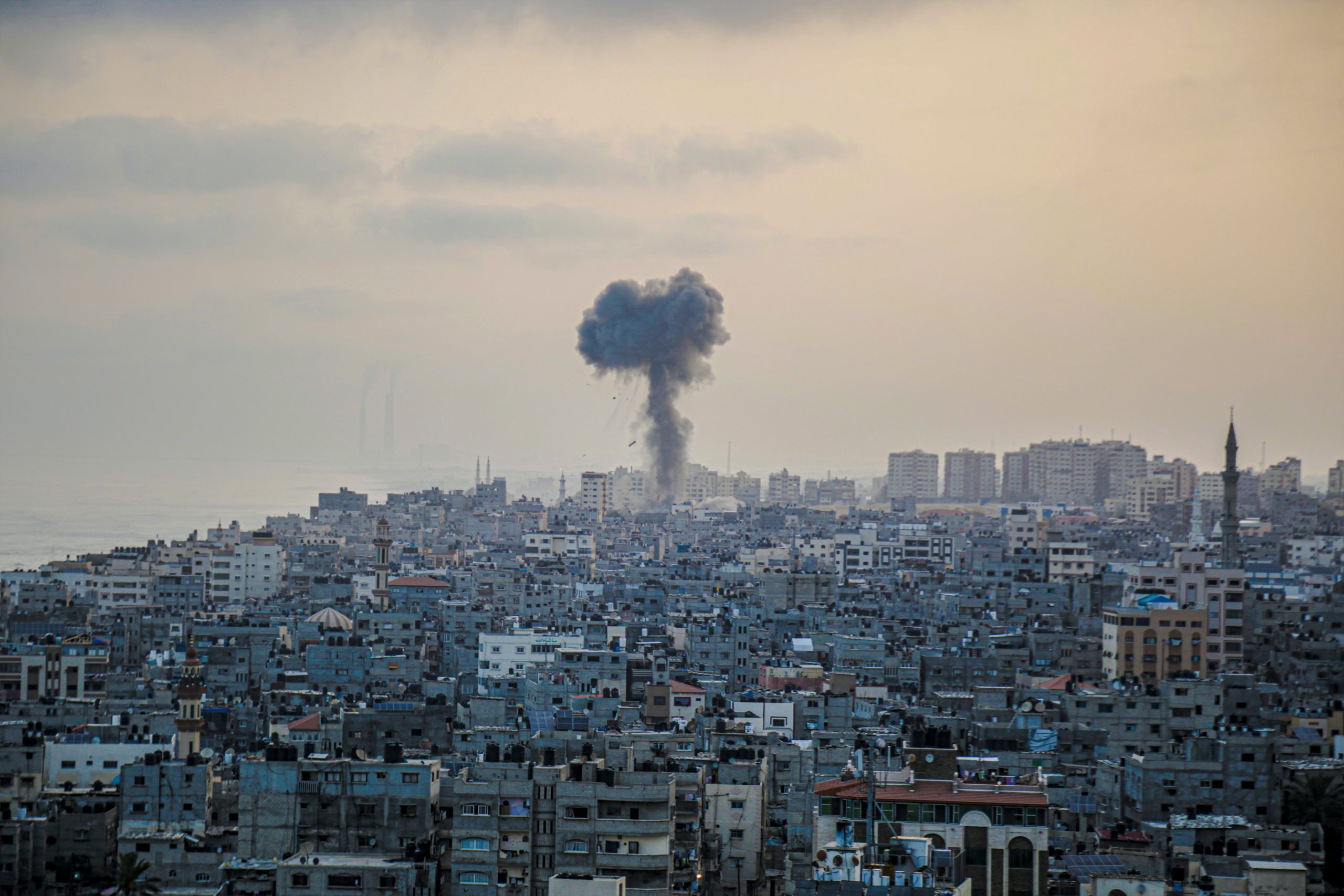This post is also available in: العربية (Arabic)
Gaza is thousands of kilometers away from my home, and the southern Lebanese border villages are about 200 kilometers from my workplace. I have enough coffee, salt, bread, enough paper to write on if I actually manage to write something. I have many things that make my life an easy one, and I am not suffering from a fuel or food crisis. Also, the neighborhood generator covers the hours of state power outages, so my refrigerator can maintain the quality of the food I put inside it. And I can use my hairdryer after I shower so that the mild November cold doesn’t make me sick.
The war has not reached my neighborhood, and most likely it will not. No one has cut off my internet access, my phone works well, and I can call my mother, my partner, and my friends anytime I want. I can even waste a whole hour of time playing online games. There doesn’t seem to be any problem here. Everything seems fine.
What do I do with all this sadness? Where does this distress come from every evening? How do I live when people in another city are dying?
Every day I try to reassure myself, though I know it’s futile. I try to rearrange my priorities to what they were before the war started, before the first missile… This exercise always ends in countless follow-up questions, but what do I do with all this sadness? Where does this distress come from every evening? How do I live when people in another city are dying? Who will pick up my heart after it falls watching children in alleys searching for their families? How do I conduct a normal interview with a woman who left her home in south Lebanon to hide in a northern village so her children don’t die from a raid or phosphorous bomb?
As residents of cities that are relatively calmer by virtue of the rules of engagement and our geographical locations far from the battlefields, are we really still living, are we really surviving? Is this what security looks like? When the numbers of dead, injured, and displaced reach this red line indicating the loss of humanity, the loss of a voice, and an impotence that is regional, international, and individual, spectators become condemned to daily death, and they also become targets. They have to die daily, and silently, from the horror of the images, the intensification of the battle, and the fear of its expanding at any moment, while simultaneously trying to persevere and live amid news of destruction and areas that are close to being vaporized from the surface of this world from sheer bombardment, cruelty, and the madness of war.
“They can defeat us if they break our spirits.” I don’t want to believe this, Omar al-Mukhtar. I want to look at this sadness as a passing whim that will be followed by a battle in which the lovers of life win. Those who stand against war. So that the battle may end… once and for all.































